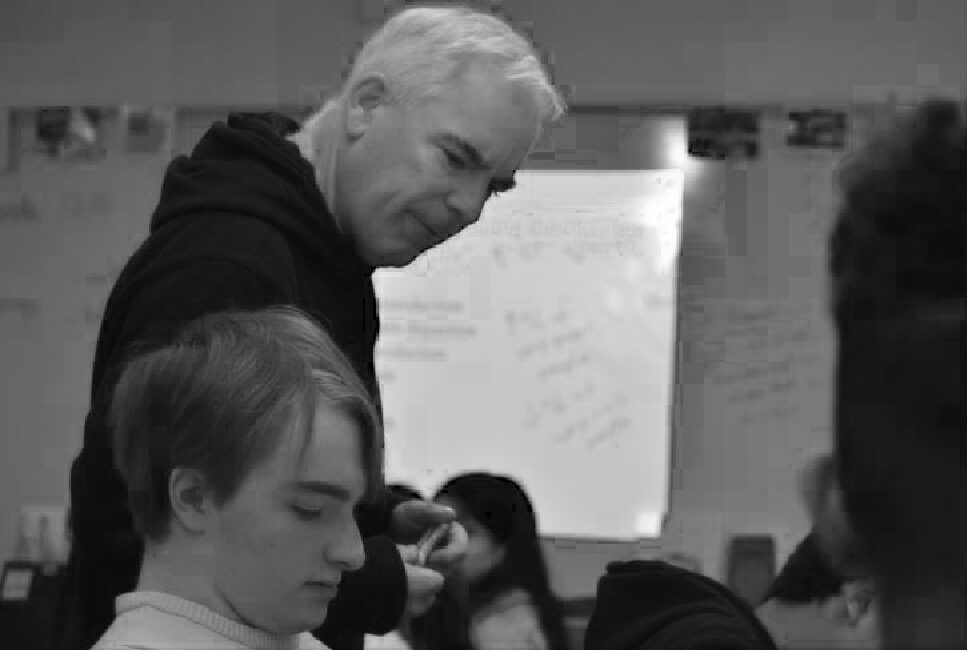Due to the development of artificial intelligence and the use of websites such as ChatGPT for essay writing, IB History of the Americas (HOA) teachers decided to take initiative this year by doubling the number of possible Paper 3 prompts from four to eight to reduce the possibility of memorization.
“Our strategy in years past has been to give kids a few questions and have them work on them with their peers or at home,” IB HOA teacher and Head of the History Department Dean Wood said. “Now, AI can give students some fairly sophisticated responses with very little work.”
IB HOA and World History teacher Alex Riddell mentioned that AI is not always used in an honest manner and in years past has been misused.
“AI, while a possibly helpful tool, was not being used as a tool and instead was being used as a way for students to cheat or plagiarize,” Riddell said. “Keeping this in mind, it was important for the IB HOA team to limit the AI-written essays.”
Many students were not aware of the change. Previous HOA students thought there were still four prompts and current HOA students thought there had always been eight.
This new revelation left students surprised.
“Why?” senior and previous HOA student JP Adiao asked. “What the f***? That’s like, that’s BS.”
Senior Kate Butterworth shared a similar reaction and said she didn’t think AI was a big problem last year.
“I’m glad I’m not a junior,” Butterworth said. “Having just four questions was already stressful enough. I can’t imagine having to prepare for eight.”
Having recently written a Paper 3 with eight possible prompts spanning over content from two separate units, current HOA students expressed their concerns about the effects of this change on their time and performance.
“I think [the change] is outrageous, it’s a disgrace,” Junior Semira Gebremariam said. “It’s so hard to prepare for it because we have double the amount of work that last year did and still have the same grading policy.”
Junior Chloe Hoang mentioned the difficulties this imposes on her time management as a student taking IB courses.
“It takes so much time away because we prepare for it so much,” Hoang said. “All of us have other classes and other things to do, especially people who do the IB Diploma. There’s so much to do, and they can’t expect us to prepare for all of it and get an ‘A’ on all of it as well.”
Butterworth said it is unfair that students who haven’t used AI in the past are being punished for the actions of previous students.
“They’re being punished for something that they didn’t do and now they have to do two times the work,” Butterworth said.
Riddell advised students against writing out each individual paper in preparation.
She said that memorizing eight papers would be detrimental to the student and their performance on the day of the exam. Instead, she suggests an organizational tactic to best prepare for the questions.
“Thinking about content in terms of themes is also very important as some units rely on one central idea to guide your responses,” Riddell said. “Some questions can be thought about in similar ways whereas some are the flipped version.”
Wood agreed with this strategy and proposed a similar one to his students.
“The best way, in my mind, to handle a huge group of questions is to group them,” Wood said. “Even if you have eight questions, they’re generally going to be grouped into two or three themes.”
Wood said there are benefits to the change in prompts and learning the strategies to prepare.
He connected the strategy of theme-grouping and common traits found in the IB system.
“IB asks for major themes like change over time, compare and contrast, causes and effects and things like that,” he said.
Riddel recognized the relevance the strategy has to IB in general and how the doubling of possible prompts can help students in their preparation for IB exams.
“The change does require more preparation,” Riddell said. “This preparation, though, is benefiting the students as they will be more prepared to write an IB exam where they will not know the questions in advance.”
Riddell believes that these types of changes are unforeseeable due to constant new developments.
“As a history teacher, we know we can never predict the future as more technology and IB changes are always possible.”

